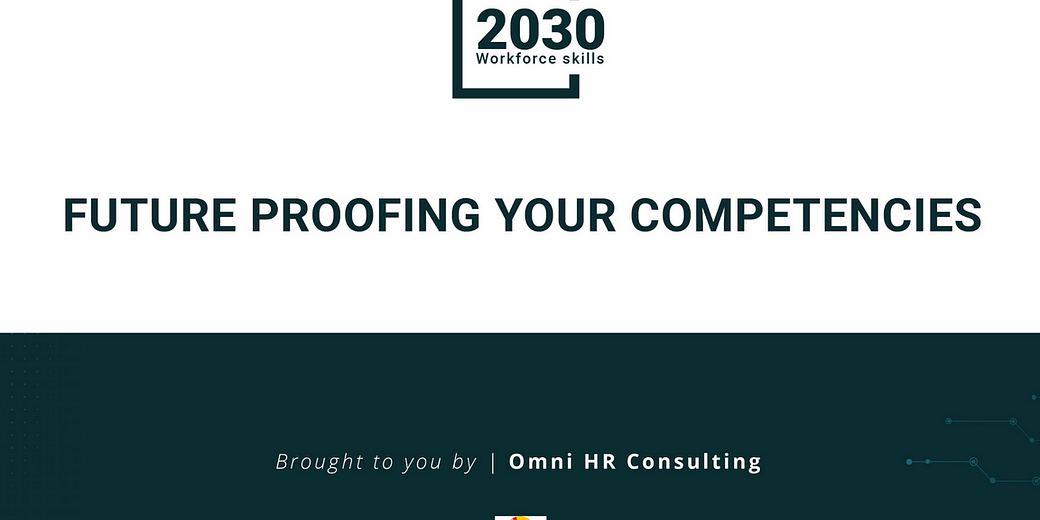2030 Disruptive Leadership: OMNI receives South African Council for Educators (SACE) endorsement
Intrinsic to the DNA of Omni HR Consulting is the drive to engage on two key societal problems: quality Post-School Education and Education for Employability. At a grassroots level, the educators who are entrusted with one of the most important roles; shaping our future generations – are required to undergo continuous professional development to maintain the profession’s professional teaching and ethical standards.

In 2020, Omni undertook to proactively engage with the South African Council for Educators (SACE) to endorse its 2030 Disruptive Leadership Curriculum. The curriculum contains twelve modules allocated with varying CPD (Continuous Professional Development) points weighted according to the complexity of the module. Operations Executive, Cindy Londt, shares some key information regarding this achievement;
Q: Who is the SACE accreditation most useful for?
CL: All educators, in public and private education institutes, that teach within the GET and FET bands must be registered with SACE. The SACE endorsement of our curriculum means that members will gain access to learning that allows them to build their Continuous Professional Development (CPD) points as part of their professional body affiliation.
Q: Provide some insight into the 2030 Disruptive Leadership Curriculum?
CL: Our published research (Leadership in an AI economy) that underpins our curriculum tells us that Ethical Leadership and the Top 10 Critical Skills of the future as identified by the World Economic Forum will play a major role in how we successfully function as we are exponentially propelled into the 4th Industrial Revolution. We currently have 5 of the 12 modules within our curriculum endorsed by SACE; they are Emotional Intelligence, Cognitive Flexibility, Collaborative Management, Creativity and Negotiation Skills.
Teaching and learning methodologies are one of the biggest influences on student learning. Committed, knowledgeable and skillful educators are among the country’s greatest assets. As an organisation, we wish to support the intent and mission of SACE by playing our part in supporting the continuous professional development of all educators in our sector. We need to ensure that our youth are equipped with the necessary skills to navigate the future – what better way to achieve this than to ensure that our educators have the tools to impart this knowledge to our future generations.

Q: What investment is required to achieve CPD points?
CL: The SACE endorsed e-Learning courses are really affordable and are available immediately from our e-commerce website starting from as little as R400. Bulk e-Learning purchases are also available with discounts based on the number of participants to be enrolled. The e-Learning is developed as bit-learning modules allowing you to complete a few minutes each day, during tea breaks, lunches or listening to a podcast on your way home in the car; alternatively, you could become so absorbed in the learning that you can complete a full module in a day! Should you wish to book in-person (classroom) or online virtual training sessions for teams, please feel free to contact us for a custom solution that best aligns with your needs.
Q: What can participants expect when engaging in the Disruptive Leaders modules?
CL: There are various modes of delivering our 2030 Disruptive Leaders modules. Participants can opt to do the self-directed online course, attend physically-distanced (face-to-face) training or engage in blended learning; which comprises e-Learning supported with live and recorded virtual training sessions. Irrespective of the chosen mode of delivery, the successful completion of the required learning outcomes, awards the learner with the associated CPD points.
What participants can really look forward to is;
- Well-researched, academically grounded, relevant and current content
- Accommodation of various methodologies to suit all learning styles
- To be challenged to think differently
- Self-reflection
- To identify personal strengths and areas of development
- Support in building a personal development plan
- Learning and acquiring new skills for relationship building and leadership engagements
- An opportunity to be part of a change revolution of exponential leaders and thinkers, wanting to make a difference in the lives of the students in our classrooms.
As modules are completed, CPD points are accumulated and result in an electronic certificate issued (endorsed by SACE) for the related learning.
Q: Do you intend on getting more courses accredited, if yes, what would be next?
CL: Yes, as mentioned the full curriculum aligned to Workforce 2030 for Disruptive Leaders consists of 12 modules of which 5 have already been endorsed. Watch this space for People Management, Complex Problem Solving, Change Management and Ethical Leadership all coming soon!
Q: Any closing remarks?
CL: The mission of SACE is to promote the continuous professional development of educators in South Africa to maintain the professionalism of teaching and ethical standards. With our current offering of the Occupationally Directed Education and Training Practitioners (ODETDP) Certificate and Diploma, the credibility of the SACE endorsement will further strengthen our offering and aligns with the mission of developing quality educators for the benefit of students and learners.
Related Posts
Omni HR Consulting has decided to seek global certification with The CPD Services in the UK, benchmarking the organisation and its programmes against global standards.
After implementing Open-Source Training in 2021, Omni HR Consulting is shifting gears to bring to its community, nine sessions in 2022 starting at the end of March!
The value-alignment has seen Omni’s mission to be disruptive in education, expedited with the introduction of an e-Assessment and e-Portfolio, powered by P4P.

















